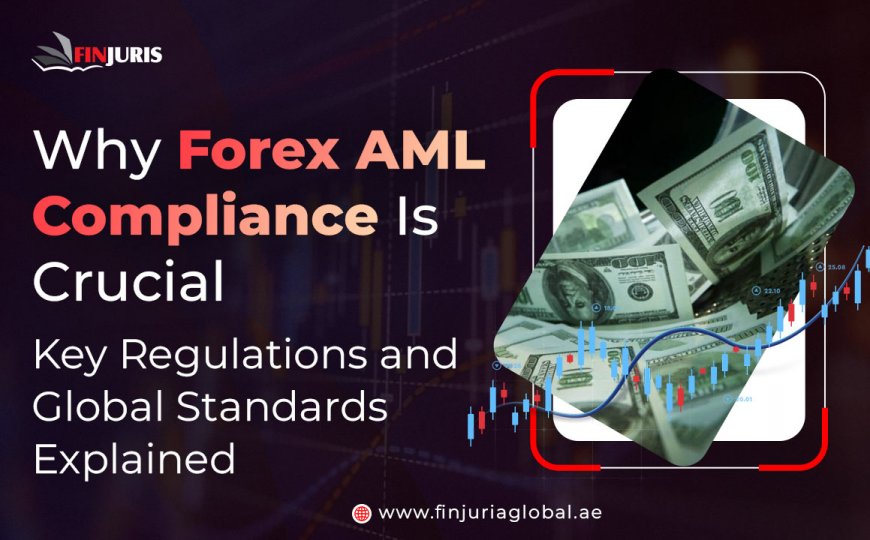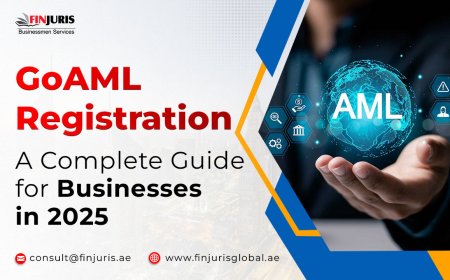Why Forex AML Compliance Is Crucial: Key Regulations and Global Standards Explained
Discover why forex AML compliance is vital. Learn global standards, India’s regulations, and key steps to protect your forex business.

Money moves faster today than ever before, and the foreign exchange (forex) market is at the heart of it. Every day, trillions of dollars are exchanged across borders. But this scale and speed make forex a prime target for money launderers and criminals seeking to move illicit funds.
That’s why Forex AML compliance (Anti-Money Laundering compliance for forex firms) is not just a legal requirement — it’s a cornerstone of trust, risk management, and global financial stability.
In this article, we’ll explain why AML compliance is crucial for forex businesses, outline the key global regulations that shape it, explore India’s AML framework for forex operators, and provide a practical checklist for compliance.
Why AML Compliance Matters in the Forex Industry
Forex brokers, payment platforms, and money-transfer operators operate in a highly regulated space. Here’s why AML compliance is critical:
-
Legal obligations and penalties
AML regulations are enforced by regulators worldwide. Non-compliance can result in heavy fines, license cancellations, criminal prosecutions, or even jail time for executives.
-
Preventing illicit activity
Forex markets are often used for “layering” — moving illicit funds through multiple transactions to obscure their origin. Strong AML controls reduce this systemic risk.
-
Maintaining trust and access to banking partners
Without documented AML programs, many brokers lose banking and payment partnerships. Institutions demand robust compliance before offering services.
-
Safeguarding reputation
A single enforcement case can ruin a brand. Transparency, reporting, and compliance culture are essential to long-term credibility.
Global AML Standards Shaping Forex Compliance
Forex firms are subject to both international and local rules. Here are the most important global standards:
FATF Recommendations
The Financial Action Task Force (FATF) issues 40 recommendations that serve as the global AML/CFT benchmark. These include requirements for:
-
Customer Due Diligence (CDD)
-
Beneficial ownership checks
-
Suspicious Transaction Reporting (STR)
-
Risk-based supervision
Most countries model their AML laws on FATF standards.
U.S. AML Regulations (FinCEN / BSA)
In the U.S., forex-related businesses often qualify as Money Services Businesses (MSBs) under the Bank Secrecy Act (BSA). They must:
-
Register with FinCEN
-
Implement AML programs
-
File Suspicious Activity Reports (SARs)
-
Perform Beneficial Ownership checks
EU AML Directives (AMLD 5 & 6)
The European Union’s directives expand AML requirements to cover not just banks but also payment providers, e-money firms, and crypto asset service providers.
Forex businesses handling cross-border e-money or crypto are directly impacted.
UK FCA Guidance
The UK Financial Conduct Authority (FCA) emphasizes that firms must assess money-laundering risks in forex and capital markets. Reliance on third parties is not enough — brokers must actively evaluate and monitor risks themselves.
India’s Regulatory Framework for Forex AML Compliance
India’s AML regime reflects FATF standards but is enforced through domestic laws and regulators:
-
Reserve Bank of India (RBI) – KYC/AML Directions
The RBI issues Master Directions on KYC and AML, requiring banks, NBFCs, and payment operators to verify customers, monitor transactions, and maintain records.
Forex remittances, conversions, and payments must strictly comply with RBI’s AML/KYC rules.
-
Financial Intelligence Unit – India (FIU-IND)
All regulated forex and financial service providers must file Suspicious Transaction Reports (STRs) and Cash Transaction Reports (CTRs) with FIU-IND.
-
Other Agencies
Depending on the service (e.g., forex derivatives, outward remittances, securities-linked forex), SEBI or other financial regulators may also apply AML rules.
In short, if your business touches currency exchange, international payments, or forex-linked crypto transactions, AML compliance in India is non-negotiable.
Essential Components of a Forex AML Program
A risk-based AML framework is the backbone of compliance. For forex firms, the following elements are crucial:
-
Risk Assessment
Identify services, products, customer types (e.g., PEPs), and jurisdictions that pose higher AML risks.
-
Customer Due Diligence (CDD) & Enhanced Due Diligence (EDD)
Collect reliable KYC data, verify beneficial ownership, and perform extra checks for high-risk clients.
-
Transaction Monitoring
Deploy monitoring tools to detect suspicious forex patterns like high-volume layering, unusual remittance corridors, or rapid trades inconsistent with profiles.
-
Sanctions & Watchlist Screening
Screen customers and transactions against global sanctions lists and politically exposed persons (PEP) databases in real-time.
-
Suspicious Transaction Reporting (STR/SAR)
Create escalation paths for investigations and file timely reports with FIU-IND, FinCEN, or other relevant bodies.
-
Record Keeping
Maintain auditable KYC, transaction logs, and investigation reports for the regulator-specified period.
-
Training & Governance
Regular staff training and board-level oversight ensure compliance is not just policy but practice.
-
Independent Review
Annual audits and third-party reviews help validate the effectiveness of AML systems.
Common Pitfalls Forex Firms Must Avoid
-
Relying solely on automation — Alerts must be investigated, not ignored.
-
Outsourcing KYC without oversight — Regulators still hold the firm responsible.
-
Poor data quality — Incomplete customer data can create compliance blind spots.
-
Ignoring beneficial ownership — Complex ownership structures must be untangled through Enhanced Due Diligence.
Quick Forex AML Compliance Checklist
-
Conduct and update AML risk assessments
-
Implement tiered CDD and EDD policies
-
Deploy transaction monitoring systems
-
Perform sanctions/PEP screening in real-time
-
File STRs/SARs to regulators promptly
-
Maintain detailed records for 5–10 years (per local rules)
-
Train employees at least once a year
-
Have independent audits of AML programs
Business Benefits of Robust AML Compliance
-
Keeps licenses and banking relationships secure
-
Protects from fines, investigations, and reputational loss
-
Builds trust with institutional partners and customers
-
Enhances fraud prevention and internal risk management
In fact, for forex businesses, AML compliance can be a competitive advantage. Firms with robust, transparent compliance programs often win more trust and business than those that only meet the bare minimum.
Final Thoughts
Forex AML compliance is more than a regulatory burden — it’s an investment in the stability, credibility, and longevity of your business. With regulators across the globe tightening scrutiny, businesses in India and worldwide must align their policies with FATF recommendations, RBI directions, and national FIU reporting requirements.
By treating compliance as an evolving discipline, forex firms can transform AML obligations into a strategic edge — securing customer trust, preserving banking relationships, and ensuring sustainable global growth.
What's Your Reaction?















